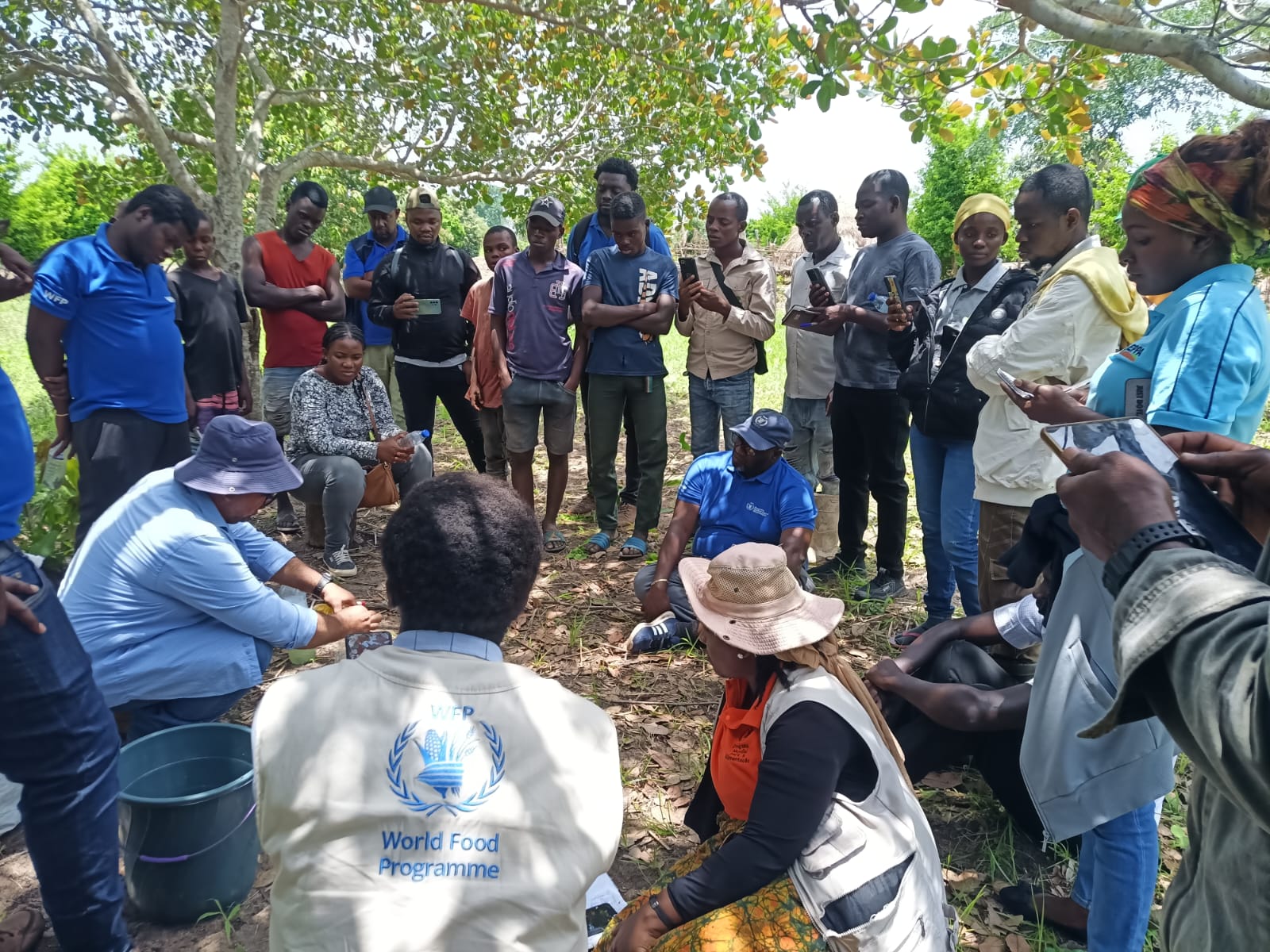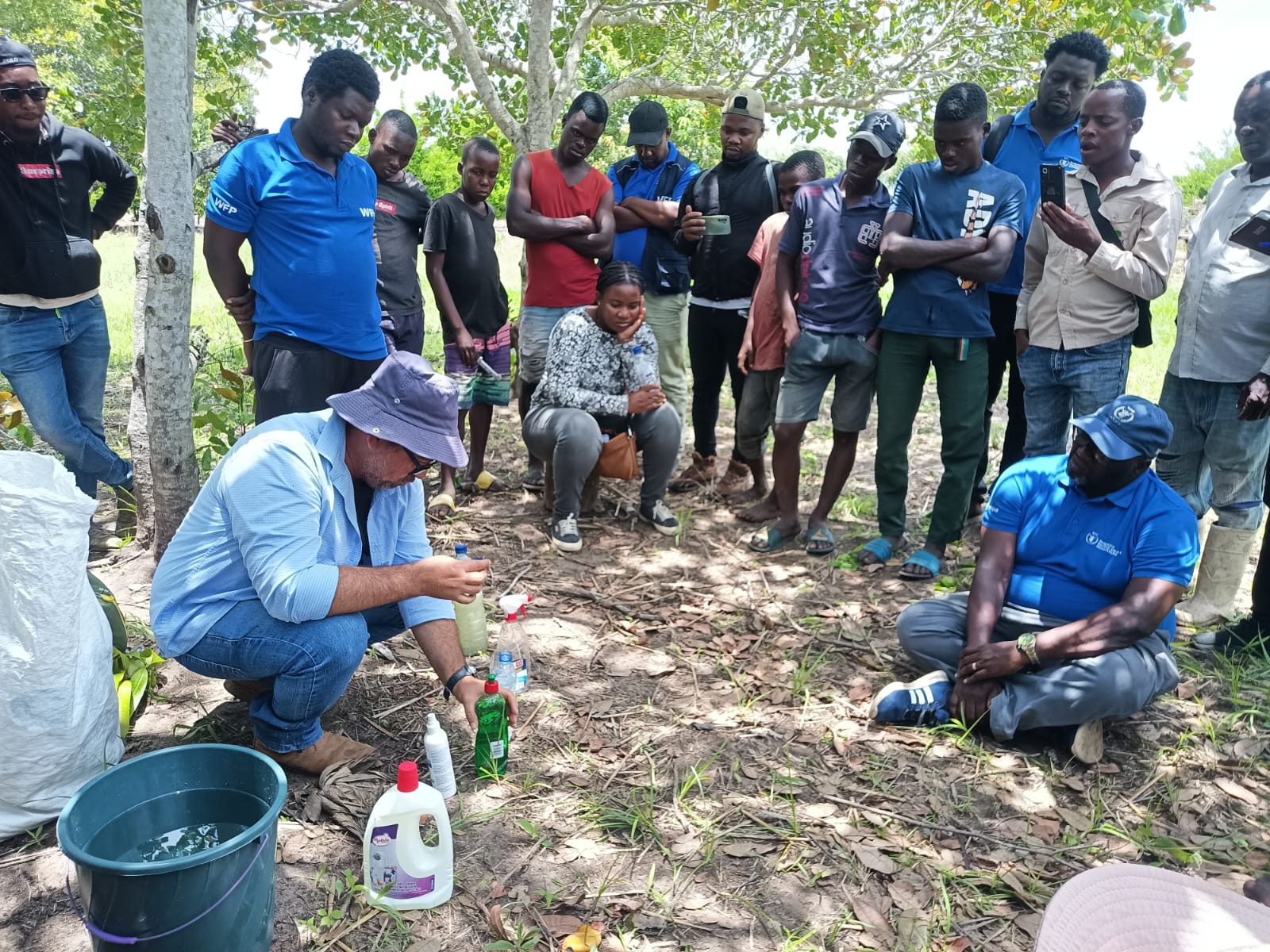
The United Nations World Food Programme (WFP) Centre of Excellence against Hunger in Brazil carried out a technical mission in October in support of the WFP Climate Adapted Food Systems unit in Mozambique. The mission is part of a technical cooperation established between the WFP Centre of Excellence in Brazil and WFP in Mozambique that seeks to identify and promote innovative and sustainable solutions to support family farmers to address the challenges in their rural communities.
Consultants Ricardo Farias and Luderlândio Andrade visited the districts of Caia, Maringue and Chemba to provide training to beneficiaries of the Integrated Climate Risk Management (ICRM) project, with support from the Korea International Cooperation Agency (KOICA). The focus of the trainings was the development of climate-smart agriculture techniques, the use of conservation agriculture tools, composting, pest management, and the establishment of low-cost infrastructure for water harvesting.
During the activities, the Training of Trainers (ToT) methodology was used. The method consists of theoretical-practical training aimed at extensionist technicians, WFP monitors and representatives of farmers from the communities who will be able to disseminate knowledge with others, thus multiplying knowledge.

“For each theme, we provoked a theoretical discussion and, based on it, the theme was put into practice in such a way that it could be complemented. This greatly favoured a more critical evaluation, as topics such as grafting, composting, or more theoretical topics, such as the extensionist approach, are in a way more noticeable or understandable,” said Ricardo Farias. “The immersion right after the theory made it much easier to understand the techniques. This regime of training alternation can be a great strategy for knowledge transfer,” he added.
During the training, the extensionist workers participated in activities on conservation agriculture tools, such as no-tillage, agricultural intercropping and crop rotation, implementation of composting, seedling replication techniques, selection of corn seeds, and planting recommendations for potato and cassava crops. According to Luderlândio Andrade, the planting of fruit trees can also be enhanced with the cultivation of vegetables, for example, because most of the areas visited have the water table close to the surface.
Participants also learned about the use of alternative inputs and agroecological strategies for pest control, as well as information about low-cost water harvesting systems, such as underground dams.




